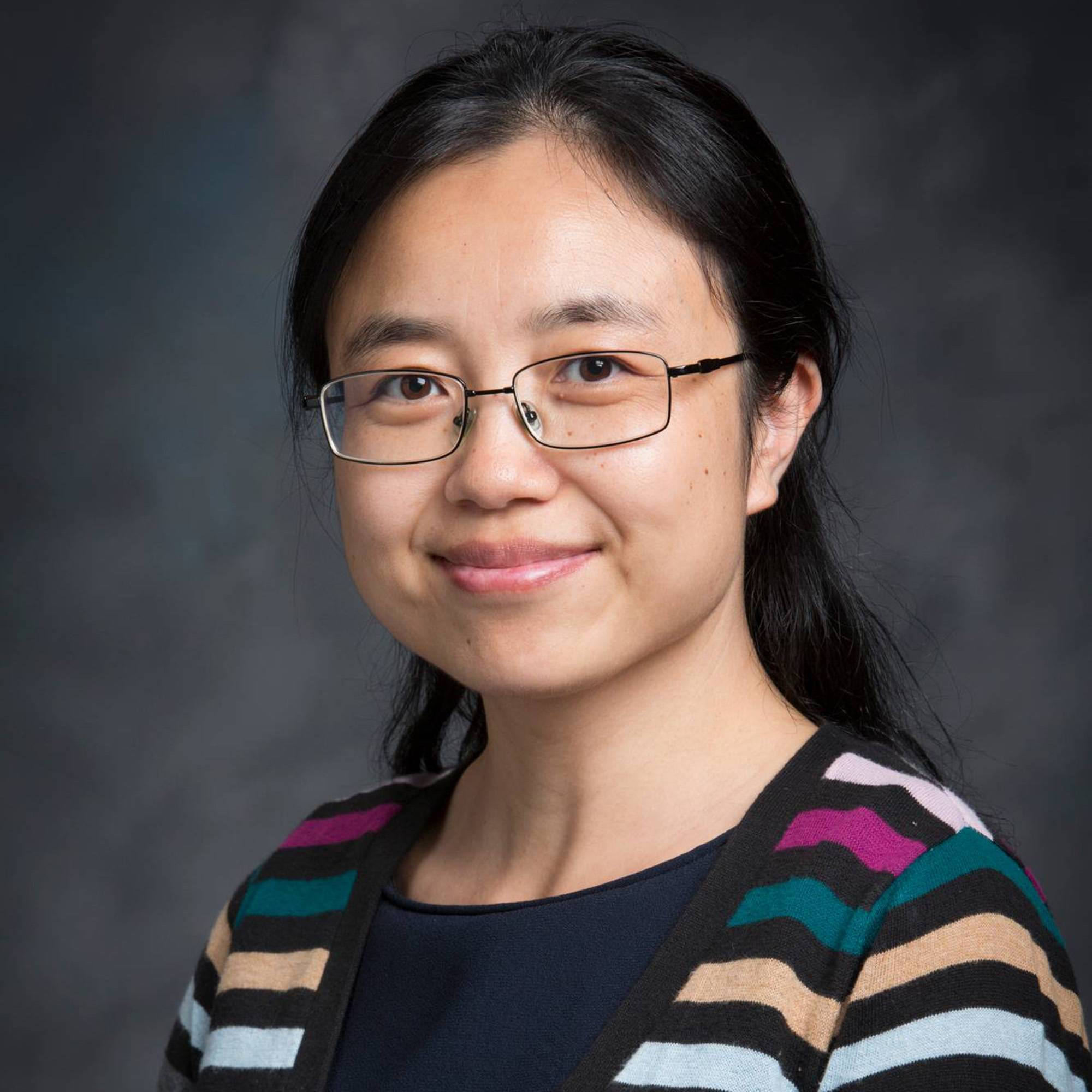
By Vallie Figueroa
Communications Specialist
McCoy College of Business
SAN MARCOS, Texas — Dr. Ju Long, professor of information systems and analytics at Texas State University's McCoy College of Business, is leading the way in artificial intelligence (AI) research, with a focus on enhancing human connection and academic excellence.
This spring, Long received the Steven R. "Steve" Gregg, Sr. Excellence Professorship, a three-year professorship that was created to advance AI across McCoy College. Long, who began her academic career at the university in 2004, said the recognition provides an opportunity to give back to the academic community that helped launch her career.
"I feel honored," she said. "It was a very humbling experience for me, and it is a very meaningful award. I've been with McCoy College for my entire career, and this is a good time for me to contribute back to the college as a full professor."
The professorship provides the platform and resources to advance AI in higher education and relevant industries. Long said she plans to use the funding and resources to promote collaboration across departments, host campus-wide events, and establish an institutional leadership presence in the AI space. While still in its early stages, Long's current research focuses on humanizing AI through applications meant to enhance people's lives, specifically in healthcare.
"What my research is focused on is how AI can be used in a healthcare setting," she said. "The current project that I'm doing is specifically to help caregivers of cancer patients."
This research aims to combine academic insight with real-world application. Long and her collaborators, including a student assistant and field practitioners, are building AI-driven tools to support breast cancer patients and their caregivers. Her goal with this research is to localize and customize AI responses for caregivers, such as recommending the proper hospital for care. Long's interest in the intersection of AI and caregiving is inspired by her background in social work and her passion for human-centric technological advancements.
"My passion is to apply technology in improving people's lives," Long said. "AI gives us a lot of that opportunity."
She suggests that agentic AI technology, capable of providing accurate, contextualized assistance and designed with a high level of reliability, could be helpful for medical field personnel. However, Long acknowledges the technical challenges, particularly in ensuring the system's accuracy in "mission-critical fields" such as healthcare.
"The tolerance for any mistake [in the medical field] is very low," she said. "The most challenging part is bringing the accuracy from 80% to like 99%. That is difficult. You need to tweak the model, train the model, adjust the knowledge base."
Her plan to address these challenges is to use approaches such as Model Context Protocols and agentic search, AI techniques that can replicate specialist consultation models to ensure precision, accuracy, and dependability.
In the classroom, Long is dedicated to preparing her students to thrive in an increasingly AI-driven workforce, even as the technology continues to evolve rapidly. She tries to integrate the latest technological developments, and this summer, she's designing two new courses: one for MBA students exploring generative AI applications in business settings, and the other for technical students focused on building AI-powered tools.
"It's very challenging for faculty to learn this, let alone to actually distill and then disseminate the knowledge to the students," she said. "I tell my students, 'We're all in this together. We're all learning together.' I keep on updating my own skill sets."
Long views AI-powered technologies as an accessible and democratizing tool that can benefit all of society. She hopes AI's reach expands to under-resourced communities with open-source models allowing people to use it from anywhere in the world. Still, she warns that such power requires responsible use and digital literacy.
"This is such a powerful tool, and it will get more powerful by the day, but we want to put it to the right use," she said. "Ultimately, I would hate it if it downgraded people's lives or their agency."
Her vision for the duration of the professorship includes facilitating AI literacy across McCoy College, creating collaborations across disciplines, and serving as the nexus between academia and industry.
With the constant updates to AI technology, Long's advice to students is to remain curious and commit to lifelong learning and skill building, but most importantly, be human.
"I always quote Steve Jobs: 'Stay hungry, stay foolish,'" she said. ✯
For more information about this story or other news, contact Vallie Figueroa, communications specialist for the McCoy College of Business, at vlf23@txstate.edu.
About the McCoy College of Business
Established in 1970, Texas State’s business school officially became the McCoy College of Business in 2004 following a transformational gift of $20 million by Emmett and Miriam McCoy. The college, which offers classes in San Marcos, Round Rock, and online, is accredited by AACSB in both business and accounting, and has graduated more than 46,000 alumni.
Marketing and Communications
McCoy Hall 322B
Texas State University
601 University Drive
San Marcos, TX 78666
512.245.2990
